中華人民共和國國家安全法(2015)(中英文對照版)
《中華人民共和國國家安全法》已由中華人民共和國第十二屆全國人民代表大會常務委員會第十五次會議於2015年7月1日通過,現予公布,自公布之日起施行。
法律文本
中華人民共和國國家安全法(2015)
State Security Law of the People's Republic of China
主席令第二十九號
Presidential Decree No. 29
《中華人民共和國國家安全法》已由中華人民共和國第十二屆全國人民代表大會常務委員會第十五次會議於2015年7月1日通過,現予公布,自公布之日起施行。
The State Security Law of the People's Republic of China, adopted at the 15th Session of the Standing Committee of the 12th National People's Congress on 1 July 2015, is hereby promulgated, effective on the date of promulgation.
中華人民共和國主席 習近平
President Xi Jinping
2015年7月1日
July 1, 2015
(2015年7月1日第十二屆全國人民代表大會常務委員會第十五次會議通過)
(Adopted at the 15th Session of the Standing Committee of the 12th National People's Congress on July 1, 2015)
第一章 總則
Chapter 1 General Provisions
第一條 為了維護國家安全,保衛人民民主專政的政權和中國特色社會主義制度,保護人民的根本利益,保障改革開放和社會主義現代化建設的順利進行,實現中華民族偉大複興,根據憲法,制定本法。
Article 1 This Law is formulated in accordance with the Constitution of the People's Republic of China for the purpose of safeguarding State security, protecting the State power of the people's democratic dictatorship and the socialist system with Chinese characteristics, protecting the fundamental interests of the people, ensuring the smooth progress of reform, opening up and the socialist modernization drive, and achieving the great rejuvenation of the Chinese nation.
第二條 國家安全是指國家政權、主權、統一和領土完整、人民福祉、經濟社會可持續發展和國家其他重大利益相對處於沒有危險和不受內外威脅的狀態,以及保障持續安全狀態的能力。
Article 2 State security refers to political power of the state, sovereignty, unity and territorial integrity, people's well-being, sustainable economic and social development and other major interests of the state shall be relatively free from danger and threats within and outside the state, as well as the ability to safeguard sustainable security.
第三條 國家安全工作應當堅持總體國家安全觀,以人民安全為宗旨,以政治安全為根本,以經濟安全為基礎,以軍事、文化、社會安全為保障,以促進國際安全為依托,維護各領域國家安全,構建國家安全體系,走中國特色國家安全道路。
Article 3 State security work shall, by adhering to the concept of overall State security, taking people's security as purpose, political security as fundamental, economic security as basis, military, cultural and social security as guarantee and promotion of international security as reliance, safeguard State security in all fields, build State security system and follow the path of State security with Chinese characteristics.
第四條 堅持中國共產黨對國家安全工作的領導,建立集中統一、高效權威的國家安全領導體制。
Article 4 We shall adhere to the leadership of the Communist Party of China over State security work and establish a centralized, efficient and authoritative State security leadership system.
第五條 中央國家安全領導機構負責國家安全工作的決策和議事協調,研究制定、指導實施國家安全戰略和有關重大方針政策,統籌協調國家安全重大事項和重要工作,推動國家安全法治建設。
Article 5 The central leadership organ of state security shall be responsible for decision-making, discussion and coordination of state security work, research and formulate, and guide the implementation of the state security strategy and relevant significant guidelines and policies, coordinate major matters and important work of state security and promote the legal construction of state security.
第六條 國家制定並不斷完善國家安全戰略,全面評估國際、國內安全形勢,明確國家安全戰略的指導方針、中長期目標、重點領域的國家安全政策、工作任務和措施。
Article 6 The State shall formulate and continuously improve State security strategies, comprehensively assess international and domestic security situations, specify the guidelines and medium and long-term objectives of State security strategies, State security policies in key areas, work tasks and measures.
第七條 維護國家安全,應當遵守憲法和法律,堅持社會主義法治原則,尊重和保障人權,依法保護公民的權利和自由。
Article 7 In safeguarding State security, it is required to abide by the Constitution and laws, adhere to the principle of socialist rule of law, respect and protect human rights and protect the rights and freedoms of citizens in accordance with the law.
第八條 維護國家安全,應當與經濟社會發展相協調。
Article 8 In safeguarding State security, it is necessary to coordinate with economic and social development.
國家安全工作應當統籌內部安全和外部安全、國土安全和國民安全、傳統安全和非傳統安全、自身安全和共同安全。
National security shall be co-ordinated between internal and external security, homeland security and national security, traditional security and non-traditional security, security of itself and common security.
第九條 維護國家安全,應當堅持預防為主、標本兼治,專門工作與群眾路線相結合,充分發揮專門機關和其他有關機關維護國家安全的職能作用,廣泛動員公民和組織,防範、制止和依法懲治危害國家安全的行為。
Article 9 In the process of safeguarding State security, it is required to put prevention first and address both symptoms and root causes, to combine specialized work and the mass line, to give full play to the function of specialized organs and other relevant organs in the safeguarding of State security and to extensively mobilize citizens and organizations to prevent, deter and punish acts endangering State security in accordance with the law.
第十條 維護國家安全,應當堅持互信、互利、平等、協作,積極同外國政府和國際組織開展安全交流合作,履行國際安全義務,促進共同安全,維護世界和平。
Article 10 In safeguarding State security, it is required to actively carry out exchanges and cooperation on security with foreign governments and international organizations to fulfill obligations of international security, promote common security and safeguard world peace by adhering to mutual trust, mutual benefit, equality and cooperation.
第十一條 中華人民共和國公民、一切國家機關和武裝力量、各政黨和各人民團體、企業事業組織和其他社會組織,都有維護國家安全的責任和義務。
Article 11 All citizens of the People's Republic of China, all State organs and armed forces, all political parties and mass organizations, enterprises, institutions and other social organizations shall have the responsibility and obligation to safeguard State security.
中國的主權和領土完整不容侵犯和分割。維護國家主權、統一和領土完整是包括港澳同胞和臺灣同胞在內的全中國人民的共同義務。
China's sovereignty and territorial integrity brook no violation or division. Safeguarding national sovereignty, unity and territorial integrity is the common obligation of all Chinese people including Hong Kong, Macao and Taiwan compatriots.
第十二條 國家對在維護國家安全工作中作出突出貢獻的個人和組織給予表彰和獎勵。
Article 12 The State shall commend and reward individuals and organizations that have made outstanding contributions to safeguarding State security.
第十三條 國家機關工作人員在國家安全工作和涉及國家安全活動中,濫用職權、玩忽職守、徇私舞弊的,依法追究法律責任。
Article 13 Any State functionary who, in State security work or activities related to State security, abuses his power, neglects his duty or engages in malpractices for personal gain shall be investigated for legal liability in accordance with law.
任何個人和組織違反本法和有關法律,不履行維護國家安全義務或者從事危害國家安全活動的,依法追究法律責任。
Any individual or organization that, in violation of the provisions of this Law and relevant laws, fails to fulfill their obligation to safeguard State security or engages in activities that endanger State security, shall be pursued for legal liability in accordance with law.
第十四條 每年4月15日為全民國家安全教育日。
Article 14 April 15 of each year shall be the National Education Day for State security.
第二章 維護國家安全的任務
Chapter 2 Tasks of Safeguarding State Security
第十五條 國家堅持中國共產黨的領導,維護中國特色社會主義制度,發展社會主義民主政治,健全社會主義法治,強化權力運行制約和監督機制,保障人民當家作主的各項權利。
Article 15 The State shall adhere to the leadership of the Communist Party of China, safeguard the socialist system with Chinese characteristics, develop socialist democracy, improve socialist rule of law, strengthen restriction and supervision mechanisms for the exercise of power, and safeguard all rights of people as masters of the country.
國家防範、制止和依法懲治任何叛國、分裂國家、煽動叛亂、顛覆或者煽動顛覆人民民主專政政權的行為;防範、制止和依法懲治竊取、泄露國家秘密等危害國家安全的行為;防範、制止和依法懲治境外勢力的滲透、破壞、顛覆、分裂活動。
The State shall take precautions against, prohibit and punish in accordance with the law any acts of treason, secession, sedition, subversion or inciting subversion of the people's democratic dictatorship, take precautions against, prohibit and punish in accordance with the law acts of endangering State security such as stealing, leaking State secrets and other acts, and take precautions against, prohibit and punish in accordance with the law activities of infiltration, sabotage, subversion and secession by overseas forces.
第十六條 國家維護和發展最廣大人民的根本利益,保衛人民安全,創造良好生存發展條件和安定工作生活環境,保障公民的生命財產安全和其他合法權益。
Article 16 The State shall safeguard and develop the fundamental interests of the overwhelming majority of people, defend people's security, create good conditions for survival and development and a stable environment for work and living and protect life and property security and other legitimate rights and interests of citizens.
第十七條 國家加強邊防、海防和空防建設,采取一切必要的防衛和管控措施,保衛領陸、內水、領海和領空安全,維護國家領土主權和海洋權益。
Article 17 The State reinforces the defence of the frontiers, seas and air space and adopts all necessary defence and control measures in order to defend the security of the territorial land, inland waters, territorial seas and territorial air space and safeguard the State's territorial sovereignty and maritime rights and interests.
第十八條 國家加強武裝力量革命化、現代化、正規化建設,建設與保衛國家安全和發展利益需要相適應的武裝力量;實施積極防禦軍事戰略方針,防備和抵禦侵略,制止武裝顛覆和分裂;開展國際軍事安全合作,實施聯合國維和、國際救援、海上護航和維護國家海外利益的軍事行動,維護國家主權、安全、領土完整、發展利益和世界和平。
Article 18 The State shall strengthen the development of revolutionization, modernization and standardization of armed forces and develop armed forces that adapt to the protection of State security and development interests; it shall implement the military strategic guideline of active defense to guard against and resist aggression and curb armed subversion and division; the State shall also carry out international military security cooperation and implement military operations such as United Nations peacekeeping, international rescue, maritime escort and safeguarding national interests abroad to safeguard national sovereignty, security, territorial integrity, development interests and world peace.
第十九條 國家維護國家基本經濟制度和社會主義市場經濟秩序,健全預防和化解經濟安全風險的制度機制,保障關系國民經濟命脈的重要行業和關鍵領域、重點產業、重大基礎設施和重大建設項目以及其他重大經濟利益安全。
Article 19 The State shall safeguard the basic economic system of the State and the order of the socialist market economy, improve the systems and mechanisms for preventing and defusing economic security risks, and safeguard the security of important industries and key areas, key industries, key infrastructure and key construction projects as well as other major economic interests that affect the lifeline of the national economy.
第二十條 國家健全金融宏觀審慎管理和金融風險防範、處置機制,加強金融基礎設施和基礎能力建設,防範和化解系統性、區域性金融風險,防範和抵禦外部金融風險的沖擊。
Article 20 The State shall improve financial macro-prudential management and financial risk prevention and disposal mechanisms and strengthen the development of financial infrastructure and basic capacity in order to prevent and resolve systemic and regional financial risks and prevent and resist the impact of external financial risks.
第二十一條 國家合理利用和保護資源能源,有效管控戰略資源能源的開發,加強戰略資源能源儲備,完善資源能源運輸戰略通道建設和安全保護措施,加強國際資源能源合作,全面提升應急保障能力,保障經濟社會發展所需的資源能源持續、可靠和有效供給。
Article 21 The State shall make rational use and protection of resources and energy, effectively control and manage the development of strategic resources and energy, strengthen strategic resources and energy reserves, improve the development of strategic channel for resources and energy transportation and security protection measures, strengthen international cooperation in resources and energy, fully enhance emergency support capability, and ensure the continuous, reliable and effective supply of resources and energy required for economic and social development.
第二十二條 國家健全糧食安全保障體系,保護和提高糧食綜合生產能力,完善糧食儲備制度、流通體系和市場調控機制,健全糧食安全預警制度,保障糧食供給和質量安全。
Article 22 The State shall improve food security assurance system, protect and enhance the overall grain production capacity, improve the grain reserve system, circulation system and market regulation mechanism, improve the early warning system for food security and ensure food supply, quality and security.
第二十三條 國家堅持社會主義先進文化前進方向,繼承和弘揚中華民族優秀傳統文化,培育和踐行社會主義核心價值觀,防範和抵制不良文化的影響,掌握意識形態領域主導權,增強文化整體實力和競爭力。
Article 23 The State shall adhere to the orientation of socialist advanced culture, inherit and carry forward the excellent traditional culture of the Chinese nation, cultivate and practice socialist core values, prevent and counteract the impact of bad culture, grasp the initiative in the ideological field and enhance the overall strength and competitiveness of culture.
第二十四條 國家加強自主創新能力建設,加快發展自主可控的戰略高新技術和重要領域核心關鍵技術,加強知識產權的運用、保護和科技保密能力建設,保障重大技術和工程的安全。
Article 24 The State shall strengthen the development of independent innovation capabilities, accelerate the development of independent and controllable strategic high-tech technologies and core and key technologies in key areas, strengthen the application and protection of intellectual property rights, the development of science and technology confidentiality capability, and safeguard the security of major technologies and projects.
第二十五條 國家建設網絡與信息安全保障體系,提升網絡與信息安全保護能力,加強網絡和信息技術的創新研究和開發應用,實現網絡和信息核心技術、關鍵基礎設施和重要領域信息系統及數據的安全可控;加強網絡管理,防範、制止和依法懲治網絡攻擊、網絡入侵、網絡竊密、散布違法有害信息等網絡違法犯罪行為,維護國家網絡空間主權、安全和發展利益。
Article 25 The State shall develop network and information security assurance system, improve network and information security assurance capabilities, strengthen innovative research, development and application of network and information technology, and achieve the security and controllability of network and information core technology, key infrastructure and information systems and data in key areas; the State shall also strengthen network management, prevent, deter and punish in accordance with the law network criminal acts such as network attacks, network intrusion, network theft, dissemination of illegal or harmful information and protect the sovereignty, security and development interests of national cyberspace.
第二十六條 國家堅持和完善民族區域自治制度,鞏固和發展平等團結互助和諧的社會主義民族關系。堅持各民族一律平等,加強民族交往、交流、交融,防範、制止和依法懲治民族分裂活動,維護國家統一、民族團結和社會和諧,實現各民族共同團結奮鬥、共同繁榮發展。
Article 26 The State shall adhere to and improve the system of regional ethnic autonomy, and consolidate and develop socialist ethnic relations characterized by equality, unity, mutual assistance and harmony. The State shall insist on the equality of all ethnic groups, strengthen exchanges, communications and blending between different ethnic groups, prevent, deter and punish ethnic separatist activities in accordance with the law, safeguard national unity, ethnic unity and social harmony, and achieve unity, common prosperity and development for all ethnic groups.
第二十七條 國家依法保護公民宗教信仰自由和正常宗教活動,堅持宗教獨立自主自辦的原則,防範、制止和依法懲治利用宗教名義進行危害國家安全的違法犯罪活動,反對境外勢力幹涉境內宗教事務,維護正常宗教活動秩序。
Article 27 The State shall protect the freedom of religious belief and normal religious activities according to the law, adhere to the principle of relying on themselves respectively, and holding their respective religions on their own, prevent, deter and punish illegal and criminal activities endangering State security in the name of religions, oppose foreign forces to interfere in domestic religious affairs, and maintain the normal order of religious activities.
國家依法取締邪教組織,防範、制止和依法懲治邪教違法犯罪活動。
The State shall ban heretical cult organizations, and prevent, deter and punish in accordance with the law heretical cult illegal and criminal activities.
第二十八條 國家反對一切形式的恐怖主義和極端主義,加強防範和處置恐怖主義的能力建設,依法開展情報、調查、防範、處置以及資金監管等工作,依法取締恐怖活動組織和嚴厲懲治暴力恐怖活動。
Article 28 The State opposes all forms of terrorism and extremism, strengthens the building of capacity for prevention and disposal of terrorism, carries out intelligence, investigation, prevention, disposal, financial supervision and other work in accordance with the law, and lawfully bans terrorist organizations and severely punishes violent terrorist activities.
第二十九條 國家健全有效預防和化解社會矛盾的體制機制,健全公共安全體系,積極預防、減少和化解社會矛盾,妥善處置公共衛生、社會安全等影響國家安全和社會穩定的突發事件,促進社會和諧,維護公共安全和社會安定。
Article 29 The State shall improve the systems and mechanisms to effectively prevent and resolve social conflicts, perfect the public security system, actively prevent, reduce and resolve social conflicts, properly handle public health, social security and other emergencies affecting national security and social stability, promote social harmony, and maintain public security and social stability.
第三十條 國家完善生態環境保護制度體系,加大生態建設和環境保護力度,劃定生態保護紅線,強化生態風險的預警和防控,妥善處置突發環境事件,保障人民賴以生存發展的大氣、水、土壤等自然環境和條件不受威脅和破壞,促進人與自然和諧發展。
Article 30 The State shall improve ecological environment protection system, intensify ecological construction and environmental protection, delineate ecological protection boundaries, strengthen warning and prevention and control of ecological risks, properly handle environmental emergencies, protect natural environment and conditions such as atmosphere, water and soil on which people depend for survival and development from threats and destruction, and promote harmonious development between man and nature.
第三十一條 國家堅持和平利用核能和核技術,加強國際合作,防止核擴散,完善防擴散機制,加強對核設施、核材料、核活動和核廢料處置的安全管理、監管和保護,加強核事故應急體系和應急能力建設,防止、控制和消除核事故對公民生命健康和生態環境的危害,不斷增強有效應對和防範核威脅、核攻擊的能力。
Article 31 The State shall adhere to peaceful use of nuclear energy and nuclear technology, strengthen international cooperation, prevent nuclear proliferation, improve non- proliferation mechanism, strengthen the management, supervision and protection of safety of nuclear facilities, nuclear materials, nuclear activities and nuclear waste disposal, strengthen the development of nuclear accident emergency system and emergency response capability, prevent, control and eliminate the damage of nuclear accidents to the life and health of citizens and ecological environment and constantly enhance the capability to effectively respond to and prevent nuclear threat and nuclear attack.
第三十二條 國家堅持和平探索和利用外層空間、國際海底區域和極地,增強安全進出、科學考察、開發利用的能力,加強國際合作,維護我國在外層空間、國際海底區域和極地的活動、資產和其他利益的安全。
Article 32 The state shall adhere to the peaceful exploration and use of outer space, international seabed areas and polar areas, enhance security access, scientific exploration, development and utilization capabilities, strengthen international cooperation, and safeguard the security of activities, assets and other interests of the state in outer space, international seabed areas and polar areas.
第三十三條 國家依法采取必要措施,保護海外中國公民、組織和機構的安全和正當權益,保護國家的海外利益不受威脅和侵害。
Article 33 The State shall take necessary measures to protect in accordance with the law the security and legitimate rights and interests of overseas Chinese citizens, organizations and institutions and to protect the interests of the State free from any threat or violation.
第三十四條 國家根據經濟社會發展和國家發展利益的需要,不斷完善維護國家安全的任務。
Article 34 The State shall constantly improve the task of safeguarding State security in light of the needs of economic and social development and State development interests.
第三章 維護國家安全的職責
Chapter III Responsibilities of Safeguarding State Security
第三十五條 全國人民代表大會依照憲法規定,決定戰爭和和平的問題,行使憲法規定的涉及國家安全的其他職權。
Article 35 The National People 's Congress shall make decisions on issues of war and peace and exercise other authorities related to State security stipulated by the Constitution in accordance with the Constitution.
全國人民代表大會常務委員會依照憲法規定,決定戰爭狀態的宣布,決定全國總動員或者局部動員,決定全國或者個別省、自治區、直轄市進入緊急狀態,行使憲法規定的和全國人民代表大會授予的涉及國家安全的其他職權。
The Standing Committee of the National People 's Congress shall decide to declare a state of war, decide on general or partial mobilization, decide to declare a state of emergency nationwide or in particular provinces, autonomous regions and municipalities directly under the Central Government, and exercise other authorities related to state security stipulated by the Constitution and granted by the National People's Congress in accordance with the Constitution.
第三十六條 中華人民共和國主席根據全國人民代表大會的決定和全國人民代表大會常務委員會的決定,宣布進入緊急狀態,宣布戰爭狀態,發布動員令,行使憲法規定的涉及國家安全的其他職權。
Article 36 The President of the People's Republic of China shall, in accordance with the decisions of the National People 's Congress or its Standing Committee, declare a state of emergency, declare a state of war, issue mobilization orders and exercise other authorities related to State security stipulated by the Constitution of the People's Republic of China.
第三十七條 國務院根據憲法和法律,制定涉及國家安全的行政法規,規定有關行政措施,發布有關決定和命令;實施國家安全法律法規和政策;依照法律規定決定省、自治區、直轄市的範圍內部分地區進入緊急狀態;行使憲法法律規定的和全國人民代表大會及其常務委員會授予的涉及國家安全的其他職權。
Article 37 The State Council shall, in accordance with the Constitution and laws, formulate administrative regulations related to State security, stipulate relevant administrative measures, issue relevant decisions and orders, implement State security laws, regulations and policies, decide parts of provinces, autonomous regions and municipalities directly under the Central Government to enter the state of emergency in accordance with laws and exercise other authorities related to State security stipulated by the Constitution and laws and granted by the National People 's Congress and its Standing Committee.
第三十八條 中央軍事委員會領導全國武裝力量,決定軍事戰略和武裝力量的作戰方針,統一指揮維護國家安全的軍事行動,制定涉及國家安全的軍事法規,發布有關決定和命令。
Article 38 The Central Military Commission shall lead the armed forces of the country, decide military strategies and operational policies of armed forces, conduct unified command of military operations to safeguard State security, formulate military regulations concerning State security and issue relevant decisions and orders.
第三十九條 中央國家機關各部門按照職責分工,貫徹執行國家安全方針政策和法律法規,管理指導本系統、本領域國家安全工作。
Article 39 All departments of the central state organs shall implement state security guidelines and policies, laws and regulations, manage and guide the state security work of the system and the area in accordance with their responsibilities.
第四十條 地方各級人民代表大會和縣級以上地方各級人民代表大會常務委員會在本行政區域內,保證國家安全法律法規的遵守和執行。
Article 40 Local people's congresses at various levels and the standing committees of the Local people's congresses at or above the county level shall, within their own administrative regions, ensure the observance and implementation of the laws and regulations governing State security.
地方各級人民政府依照法律法規規定管理本行政區域內的國家安全工作。
Local people's governments at all levels shall manage state security work within their administrative areas in accordance with laws and regulations.
香港特別行政區、澳門特別行政區應當履行維護國家安全的責任。
Hong Kong and Macao Special Administrative Regions shall perform the responsibility to safeguard State security.
第四十一條 人民法院依照法律規定行使審判權,人民檢察院依照法律規定行使檢察權,懲治危害國家安全的犯罪。
Article 41 The People's Courts shall exercise judicial power in accordance with law and the People's Procuratorates shall exercise procuratorial power in accordance with law, to punish crimes against State security.
第四十二條 國家安全機關、公安機關依法搜集涉及國家安全的情報信息,在國家安全工作中依法行使偵查、拘留、預審和執行逮捕以及法律規定的其他職權。
Article 42 The State security organs and the public security organs shall collect intelligence information relating to State security in accordance with the law and shall, in State security work, exercise investigation, detention, preliminary hearing and execution of arrest and other functions and powers prescribed by the law.
有關軍事機關在國家安全工作中依法行使相關職權。
Relevant military organs shall exercise relevant functions and powers in State security work.
第四十三條 國家機關及其工作人員在履行職責時,應當貫徹維護國家安全的原則。
Article 43 The state organs and their staff shall implement the principle of safeguarding state security when performing their duties.
國家機關及其工作人員在國家安全工作和涉及國家安全活動中,應當嚴格依法履行職責,不得超越職權、濫用職權,不得侵犯個人和組織的合法權益。
State organs and their staff shall perform their duties in strict accordance with the law in State security work and activities related to State security and shall not overstep or abuse their powers or infringe upon the legitimate rights and interests of individuals and organizations.
第四章 國家安全制度
Chapter 4 State Security System
第一節 一般規定
Section 1 General Provisions
第四十四條 中央國家安全領導機構實行統分結合、協調高效的國家安全制度與工作機制。
Article 44 The central leadership organ of state security shall implement the state security system and working mechanism characterized by the combination of centralized operation with decentralized operation, coordination and efficiency.
第四十五條 國家建立國家安全重點領域工作協調機制,統籌協調中央有關職能部門推進相關工作。
Article 45 The State shall establish a coordination mechanism for State security work in key areas to coordinate relevant central functional departments to promote related work.
第四十六條 國家建立國家安全工作督促檢查和責任追究機制,確保國家安全戰略和重大部署貫徹落實。
Article 46 The State shall establish supervision and inspection and accountability mechanisms for State security work to ensure the implementation of State security strategies and major deployment.
第四十七條 各部門、各地區應當采取有效措施,貫徹實施國家安全戰略。
Article 47 All departments and regions shall take effective measures to implement state security strategies.
第四十八條 國家根據維護國家安全工作需要,建立跨部門會商工作機制,就維護國家安全工作的重大事項進行會商研判,提出意見和建議。
Article 48 The State shall establish an inter-departmental consultation mechanism as needed for safeguarding State security to carry out consultation and judgment on major matters concerning safeguarding State security and put forward opinions and suggestions.
第四十九條 國家建立中央與地方之間、部門之間、軍地之間以及地區之間關於國家安全的協同聯動機制。
Article 49 The State shall establish a collaborative linkage mechanism on State security between the central and the local governments, between departments, between the military and the civil authorities and between various regions.
第五十條 國家建立國家安全決策諮詢機制,組織專家和有關方面開展對國家安全形勢的分析研判,推進國家安全的科學決策。
Article 50 The State shall establish a decision-making consultation mechanism for State security and organize experts and relevant parties to carry out analysis and judgment of the situation of State security so as to promote scientific decision-making of State security.
第二節 情報信息
Section 2 Information
第五十一條 國家健全統一歸口、反應靈敏、準確高效、運轉順暢的情報信息收集、研判和使用制度,建立情報信息工作協調機制,實現情報信息的及時收集、準確研判、有效使用和共享。
Article 51 The State shall improve the centralized, responsive, accurate and efficient and smooth system for gathering, judging and using intelligence information, and establish a coordination mechanism for intelligence information, so as to achieve the timely collection, accurate judgment, effective use and sharing of intelligence information.
第五十二條 國家安全機關、公安機關、有關軍事機關根據職責分工,依法搜集涉及國家安全的情報信息。
Article 52 According to division of responsibilities, state security organs, public security organs and relevant military organs shall collect intelligence information involving state security in accordance with the law.
國家機關各部門在履行職責過程中,對於獲取的涉及國家安全的有關信息應當及時上報。
All departments of State organs shall timely report relevant information acquired concerning State security in performing their duties.
第五十三條 開展情報信息工作,應當充分運用現代科學技術手段,加強對情報信息的鑒別、篩選、綜合和研判分析。
Article 53 In carrying out the work of intelligence information, it is required to make full use of modern science and technology, and to strengthen the identification, screening, synthesis and judgments of the intelligence information.
第五十四條 情報信息的報送應當及時、準確、客觀,不得遲報、漏報、瞞報和謊報。
Article 54 Intelligence information submissions shall be timely, accurate, objective, and may not be late, omissive, concealed or false.
第三節 風險預防、評估和預警
Section 3 Risk Prevention, Assessment and Early Warning
第五十五條 國家制定完善應對各領域國家安全風險預案。
Article 55 The state shall develop and improve state security risk plans in all areas.
第五十六條 國家建立國家安全風險評估機制,定期開展各領域國家安全風險調查評估。
Article 56 The State shall establish a risk assessment mechanism for State security and regularly carry out surveys to assess State security risks in all areas.
有關部門應當定期向中央國家安全領導機構提交國家安全風險評估報告。
Relevant departments shall submit state security risk assessment reports to the central leadership organ of state security on a regular basis.
第五十七條 國家健全國家安全風險監測預警制度,根據國家安全風險程度,及時發布相應風險預警。
Article 57 The State shall improve the monitoring and early warning system for State security risks, and according to the degree of State security risks, timely release relevant risk early warning.
第五十八條 對可能即將發生或者已經發生的危害國家安全的事件,縣級以上地方人民政府及其有關主管部門應當立即按照規定向上一級人民政府及其有關主管部門報告,必要時可以越級上報。
Article 58 With regard to events endangering State security that may be about to occur or have occurred, local people's governments at or above the county level and their relevant competent departments shall immediately report to the people's governments at the next higher level and their relevant competent departments in accordance with the regulations and may bypass the immediate authority when necessary.
第四節 審查監管
Section 4 Review Supervision
第五十九條 國家建立國家安全審查和監管的制度和機制,對影響或者可能影響國家安全的外商投資、特定物項和關鍵技術、網絡信息技術產品和服務、涉及國家安全事項的建設項目,以及其他重大事項和活動,進行國家安全審查,有效預防和化解國家安全風險。
Article 59 The State shall establish systems and mechanisms for national security review and supervision and carry out national security review on foreign investment, specific items and key technologies, network information technology products and services and construction projects involving national security that affect or may affect national security as well as other significant matters and activities to effectively prevent and eliminate state security risks.
第六十條 中央國家機關各部門依照法律、行政法規行使國家安全審查職責,依法作出國家安全審查決定或者提出安全審查意見並監督執行。
Article 60 All departments of the central state organs shall exercise their responsibilities of State security review in accordance with laws and administrative regulations, make decisions on State security review in accordance with the law or put forward security review opinions and supervise the implementation thereof.
第六十一條 省、自治區、直轄市依法負責本行政區域內有關國家安全審查和監管工作。
Article 61 The people's governments of provinces, autonomous regions and centrally administered municipalities are responsible for the national security review and regulation within their respective administrative regions according to the law.
第五節 危機管控
Section 5 Crisis Management and Control
第六十二條 國家建立統一領導、協同聯動、有序高效的國家安全危機管控制度。
Article 62 The State shall establish an orderly and efficient crisis management and control system for State security with unified leadership and collaborative linkage.
第六十三條 發生危及國家安全的重大事件,中央有關部門和有關地方根據中央國家安全領導機構的統一部署,依法啟動應急預案,采取管控處置措施。
Article 63 When major events endangering State security occur, relevant central departments and relevant regions shall, in accordance with the unified deployment of the central leadership organ of State security, start emergency plans in accordance with the law and take management and control disposal measures.
第六十四條 發生危及國家安全的特別重大事件,需要進入緊急狀態、戰爭狀態或者進行全國總動員、局部動員的,由全國人民代表大會、全國人民代表大會常務委員會或者國務院依照憲法和有關法律規定的權限和程序決定。
Article 64 Upon occurrence of a particularly significant event that endangers State security, where it is necessary to enter the state of emergency, the state of war or carry out general or partial mobilization, the National People 's Congress, the Standing Committee of the National People's Congress or the State Council shall make a decision thereon in accordance with the authority and procedures stipulated by the Constitution and relevant laws.
第六十五條 國家決定進入緊急狀態、戰爭狀態或者實施國防動員後,履行國家安全危機管控職責的有關機關依照法律規定或者全國人民代表大會常務委員會規定,有權采取限制公民和組織權利、增加公民和組織義務的特別措施。
Article 65 After the State has decided to enter the state of emergency, the state of war or implement national defense mobilization, relevant organs that perform responsibilities of management and control of state security crisis shall have the right to take special measures to restrict the rights of citizens and organizations and increase the obligations of citizens and organizations.
第六十六條 履行國家安全危機管控職責的有關機關依法采取處置國家安全危機的管控措施,應當與國家安全危機可能造成的危害的性質、程度和範圍相適應;有多種措施可供選擇的,應當選擇有利於最大程度保護公民、組織權益的措施。
Article 66 Relevant organs that perform responsibilities of management and control of State security risks shall take management and control measures to dispose of State security risks in accordance with the law, and shall adapt to the nature, extent and scope of the potential harm by State security risks. Where there are a variety of measures to choose, measures that will maximize the protection of the rights and interests of citizens and organizations shall be chosen.
第六十七條 國家健全國家安全危機的信息報告和發布機制。
Article 67 The state shall perfect state security crisis information reporting and release mechanism.
國家安全危機事件發生後,履行國家安全危機管控職責的有關機關,應當按照規定準確、及時報告,並依法將有關國家安全危機事件發生、發展、管控處置及善後情況統一向社會發布。
After the occurrence of state security crisis events, relevant organs that perform responsibilities of management and control of state security crisis events shall make accurate and timely reports in accordance with the provisions, and shall, in accordance with the law, uniformly publicize the occurrence, development, management and control disposal and aftermath situations of the state security crisis events.
第六十八條 國家安全威脅和危害得到控制或者消除後,應當及時解除管控處置措施,做好善後工作。
Article 68 After the State security threats and damage are controlled or eliminated, the management and control measures shall be timely lifted in order to properly deal with the aftermath.
第五章 國家安全保障
Chapter 5 State Security Protection
第六十九條 國家健全國家安全保障體系,增強維護國家安全的能力。
Article 69 The State shall improve the State security assurance system and enhance the capability of safeguarding State security.
第七十條 國家健全國家安全法律制度體系,推動國家安全法治建設。
Article 70 The State shall improve State security legal system and promote the development of State security under rule of law.
第七十一條 國家加大對國家安全各項建設的投入,保障國家安全工作所需經費和裝備。
Article 71 The State shall increase investment in all constructions concerning State security and guarantee funds and equipment required by State security work.
第七十二條 承擔國家安全戰略物資儲備任務的單位,應當按照國家有關規定和標準對國家安全物資進行收儲、保管和維護,定期調整更換,保證儲備物資的使用效能和安全。
Article 72 Entities undertaking the task of reserving strategic materials for state security shall, in accordance with the relevant provisions and standards of the state, collect, store, keep, and maintain state security materials, and adjust and replace them regularly to guarantee the use efficiency and security of the reserved materials.
第七十三條 鼓勵國家安全領域科技創新,發揮科技在維護國家安全中的作用。
Article 73 We shall encourage scientific and technological innovation in the field of State security and give play to the role of science and technology in the maintenance of State security.
第七十四條 國家采取必要措施,招錄、培養和管理國家安全工作專門人才和特殊人才。
Article 74 The State shall take necessary measures to recruit, train and manage professionals and special talents for State security work.
根據維護國家安全工作的需要,國家依法保護有關機關專門從事國家安全工作人員的身份和合法權益,加大人身保護和安置保障力度。
The State shall, in accordance with the requirements of safeguarding State security work, protect the identities and legitimate rights and interests of the special staff engaged in State security work of the relevant organs in accordance with the law and intensify the safeguarding of personal protection and resettlement.
第七十五條 國家安全機關、公安機關、有關軍事機關開展國家安全專門工作,可以依法采取必要手段和方式,有關部門和地方應當在職責範圍內提供支持和配合。
Article 75 The State security organs, public security organs and relevant military organs, when carrying out specialized work for State security, may take necessary means and methods in accordance with the law, and relevant departments and regions shall provide support and cooperation within the scope of their duties.
第七十六條 國家加強國家安全新聞宣傳和輿論引導,通過多種形式開展國家安全宣傳教育活動,將國家安全教育納入國民教育體系和公務員教育培訓體系,增強全民國家安全意識。
Article 76 The State shall strengthen press publicity and public opinion guidance for State security and carry out publicity and education activities on State security in various forms. The education of State security shall be included in the national education system and the education and training system for civil servants so as to enhance the awareness of State security of all the people.
第六章 公民、組織的義務和權利
Chapter 6 Obligations and Rights of Citizens and Organizations
第七十七條 公民和組織應當履行下列維護國家安全的義務:
Article 77 Citizens and organizations shall perform the following duties of safeguarding State security:
(一)遵守憲法、法律法規關於國家安全的有關規定;
1. Abiding by the relevant provisions of the Constitution and laws and regulations on state security;
(二)及時報告危害國家安全活動的線索;
2. timely report clues endangering state security activities;
(三)如實提供所知悉的涉及危害國家安全活動的證據;
(III) truthfully provide known evidence relating to activities endangering State security;
(四)為國家安全工作提供便利條件或者其他協助;
(IV) provide convenience or other assistance for State security work;
(五)向國家安全機關、公安機關和有關軍事機關提供必要的支持和協助;
(V) provide necessary support and assistance for national security organs, public security organs and relevant military organs; and
(六)保守所知悉的國家秘密;
(VI) keeping the known state secrets;
(七)法律、行政法規規定的其他義務。
(VII) Other obligations stipulated by laws and administrative regulations.
任何個人和組織不得有危害國家安全的行為,不得向危害國家安全的個人或者組織提供任何資助或者協助。
No individual or organization may commit acts that endanger State security or provide any subsidies or assistance to individuals or organizations that endanger State security.
第七十八條 機關、人民團體、企業事業組織和其他社會組織應當對本單位的人員進行維護國家安全的教育,動員、組織本單位的人員防範、制止危害國家安全的行為。
Article 78 State organs, people's organizations, enterprises, institutions and other social organizations shall educate their personnel with regard to the maintenance of State security, mobilize and organize them to prevent and check acts that endanger State security.
第七十九條 企業事業組織根據國家安全工作的要求,應當配合有關部門采取相關安全措施。
Article 79 Enterprises and public institutions shall, as required for State security work, cooperate with the relevant departments to take relevant security measures.
第八十條 公民和組織支持、協助國家安全工作的行為受法律保護。
Article 80 The acts of supporting and assisting State security work by citizens and organizations are protected by law.
因支持、協助國家安全工作,本人或者其近親屬的人身安全面臨危險的,可以向公安機關、國家安全機關請求予以保護。公安機關、國家安全機關應當會同有關部門依法采取保護措施。
If the personal safety of the individuals or that of their close relatives is at risk due to supporting or assisting State security work, they may apply to public security organs and State security organs for protection. The public security organs and the state security organs shall in concert with relevant departments take protective measures in accordance with the law.
第八十一條 公民和組織因支持、協助國家安全工作導致財產損失的,按照國家有關規定給予補償;造成人身傷害或者死亡的,按照國家有關規定給予撫恤優待。
Article 81 Property losses incurred by citizens and organizations due to supporting or assisting State security work shall be compensated in accordance with relevant provisions of the State; where personal injury or death is caused, financial support and preferential treatment shall be granted according to relevant provisions of the State.
第八十二條 公民和組織對國家安全工作有向國家機關提出批評建議的權利,對國家機關及其工作人員在國家安全工作中的違法失職行為有提出申訴、控告和檢舉的權利。
Article 82 Citizens and organizations shall have the right to make criticisms and suggestions concerning State security work to the State organs, and shall have the right to make complaints about, charges against and exposures of violation of law and neglect of duty in State security work by State organs and their staff.
第八十三條 在國家安全工作中,需要采取限制公民權利和自由的特別措施時,應當依法進行,並以維護國家安全的實際需要為限度。
Article 83 In the state security work, where it is necessary to take special measures to restrict the rights and freedoms of citizens, such measures shall be carried out in accordance with the law to the extent of maintaining the actual needs of safeguarding state security.
第七章 附則
Chapter 7 Supplementary Provisions
第八十四條 本法自公布之日起施行。
Article 84 This Law shall go into effect as of the date of promulgation.
©本站文章、圖片等內容知識產權歸作者所有。本站所有內容均來源於網絡,僅供學習交流使用!
轉載請注明出處: 法總荟 » 中華人民共和國國家安全法(2015)(中英文對照版)

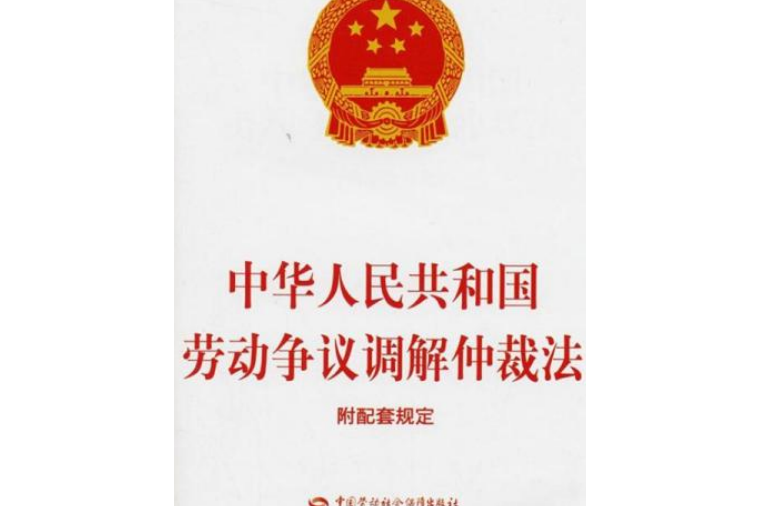

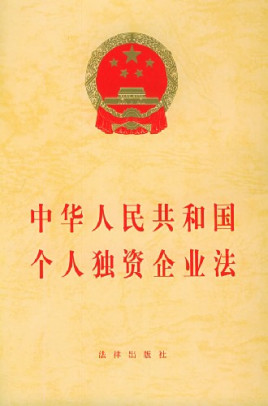
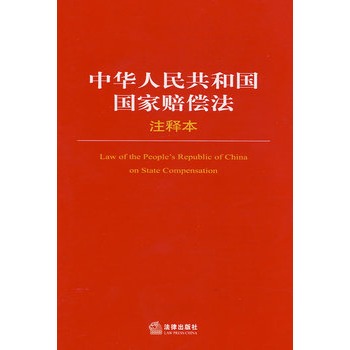
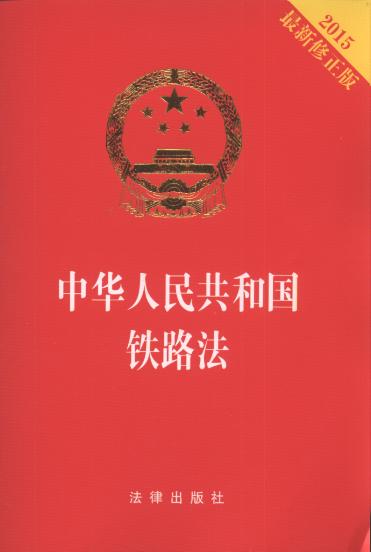
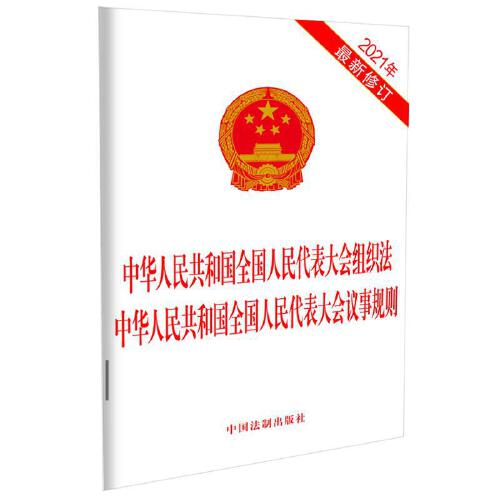


發表評論 取消回複